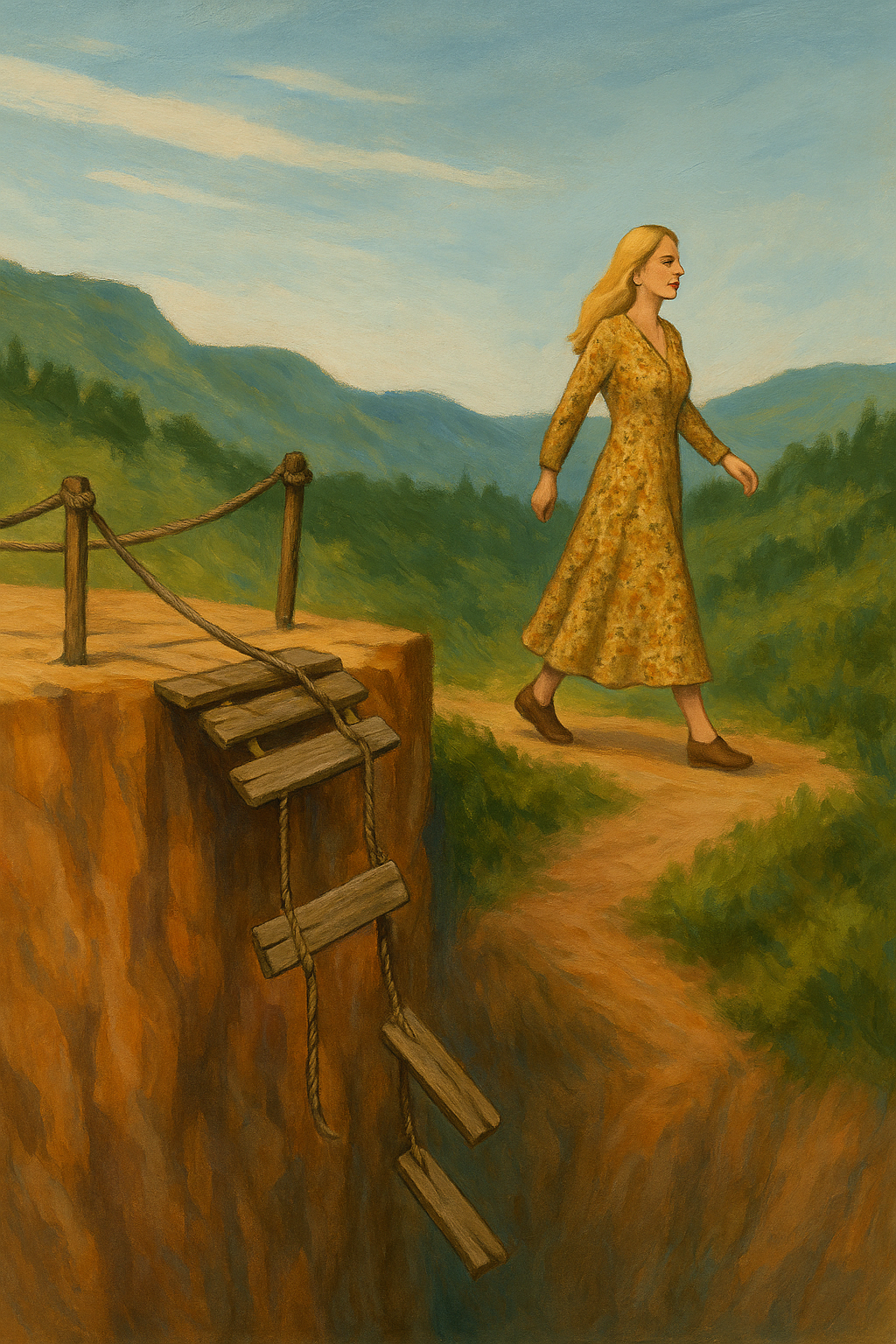Category: Unwritten & Understood
The unspoken apology…
This is for the ones still waiting.
For the ones who never got the words they deserved.
For the ones learning that silence is its own kind of betrayal.
You don’t have to carry the weight of someone else’s unspoken apology.
When people hurt us, it’s natural to want peace. To find our way to forgiveness. But it’s hard to get there when the person who caused the pain never even admits they caused it. No apology. No ownership. Just… avoidance.
It can leave you feeling untethered. How do you heal without a bridge?
Because that’s what an apology is. It’s not just the right thing to do—it’s the bridge. The crossing point between pain and reconciliation. It doesn’t even require guilt or agreement. It simply requires recognition.
Without it, there’s no crossing. No repair. Just two people standing on opposite shores, and one of them pretending the water doesn’t exist.
And that’s where it stings. When someone won’t apologize, they aren’t just avoiding responsibility—They’re declaring, in one form or another, that your hurt isn’t worth the effort.
It feels like rejection. Because it is a kind of rejection. Not of the event, but of you.
But here’s what I want you to know: It’s not a reflection of your worth. It’s a reflection of their character.
I’ve told my kids this for years. When they fight and resist saying sorry, I remind them: An apology doesn’t mean you did something wrong on purpose. It doesn’t even mean what you did was wrong at all. It means someone was hurt. And if you care that they’re hurt—even just a little—you make it right. You say the words.
That’s the same reason we instinctively say “I’m sorry” when we bump into someone at the grocery store. We didn’t mean to. It wasn’t malicious. But someone was affected, and we acknowledge it. That’s what decent people do. Not because they’re guilty, but because they’re good.
So what does it say when someone can’t even do that? When they can’t offer a simple act of repair to someone they once cared about?
It says they’re unequipped. It says they are still run by pride, or shame, or fear. It says they think being right is more important than being kind. And it says they likely struggle to offer that bridge to anyone, not just you.
And if you need one more way to see it clearly: Think of the person behind you in traffic. You’re driving the speed limit, but someone’s on your bumper. You’re boxed in. You can’t go any faster. But they honk anyway. Throw the finger. Roll down their window to scream at you like you’re the problem.
You know better. You know it’s not about you. They were already angry. Already impatient. Already spiraling.
And that’s what it’s like when someone refuses to apologize. Their silence isn’t about your value. It’s about their own dysfunction.
It’s easy to think, I guess I didn’t mean enough to them. And that might be partly true. But more often than not, nobody does. Because their inability to apologize isn’t selective. It’s systemic.
So no, you didn’t get the bridge. But let that be the answer. And let it free you.
If You Didn’t Know Them… Would You Stay?
Here’s the thing: If you didn’t know this person—if there were no memories, no shared past, no emotional thread pulling you toward them—and someone described them to you like this:
“They hurt people and walk away untouched.
No apology. No regret. No effort to make it right.”
Now imagine that person standing in a group photo. At a party. With their heart fully visible—stitched to their sleeve for all to see. Would you want to be in that picture?
Would you want your name associated with someone who makes a habit of avoiding accountability? Someone who finds a way to disappear when repair is needed most?
Probably not.
Because that’s not who you are.
If you’re still reading this, chances are you’re the kind of person who says “I’m sorry” even when it’s hard. You’re the kind who feels it deep when you’ve hurt someone—intentional or not. You want to make it right. That’s your reflex. That’s your nature.
So no—you don’t understand people who don’t. And that’s a good thing. That means you’re not them.
You’ve been grieving the absence of a bridge, but maybe now you can be grateful you’re not the kind of person who destroys one.
That clarity? That’s your release.
That’s your self-worth giving your heart permission to resign.
You’re not the villain here. You’re not even the one who needs fixing.
You’re just the one who finally sees it for what it is. And you’re allowed to walk away— grateful that your name isn’t tied to theirs anymore.
You deserve to be in a better picture.

Leave a Reply